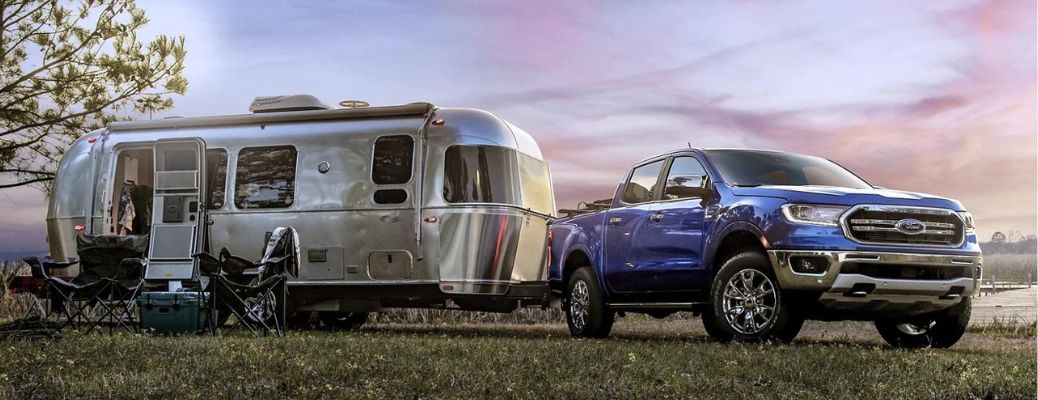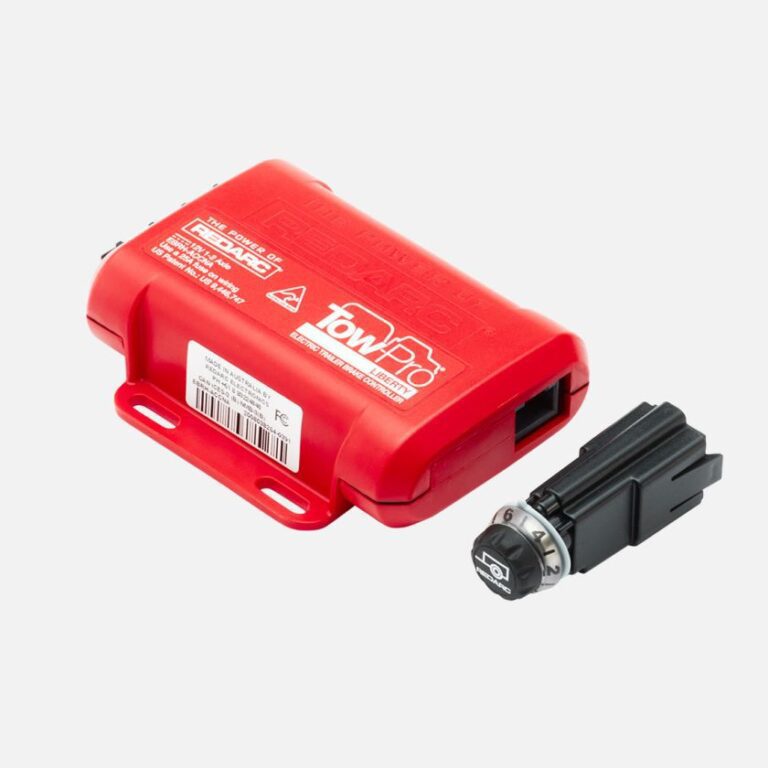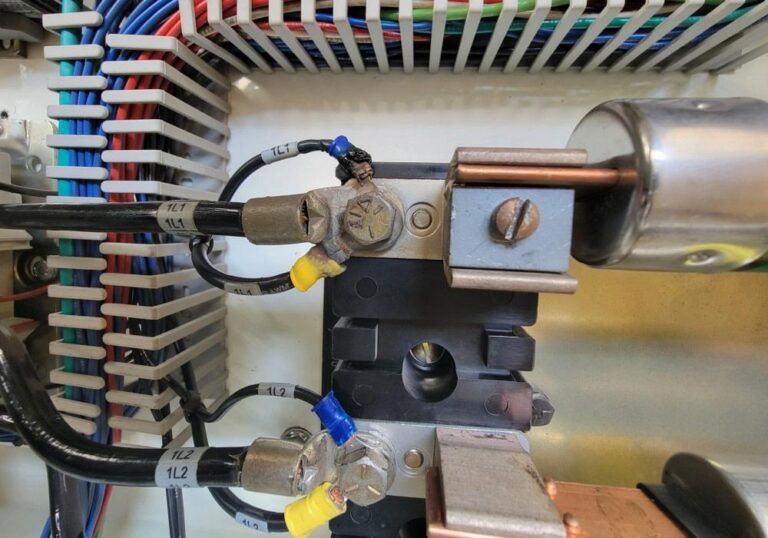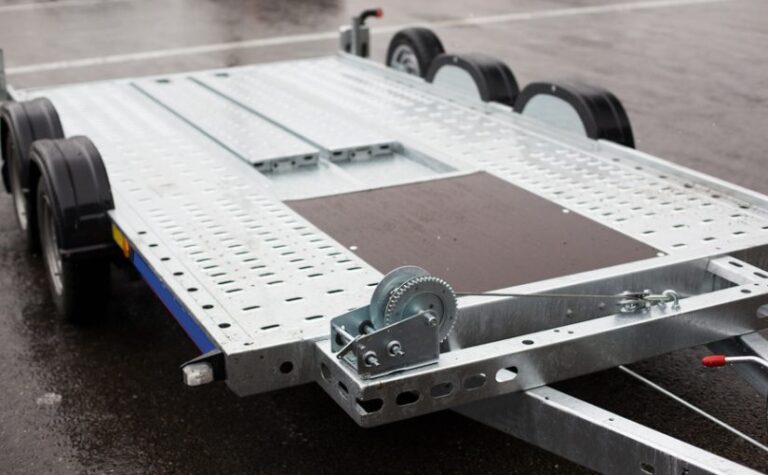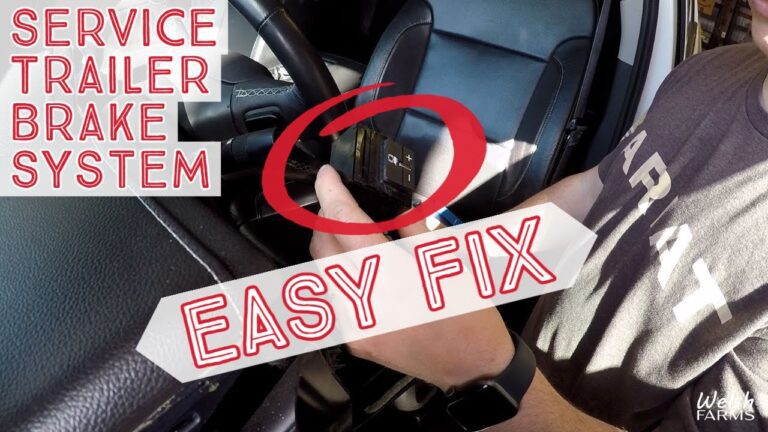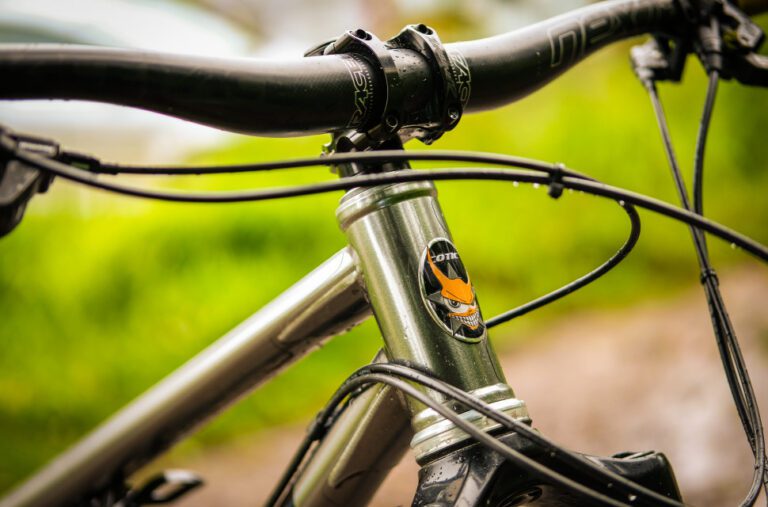Mastering Trailer Safety: Adjusting Your Brake Controller’s Gain Setting
The trailer brake controller gain setting must be adjusted when the trailer weight or load changes. Adjusting the gain setting of your trailer brake controller is essential to ensure maximum stopping power and towing efficiency.
A brake controller is an electronic device that controls the proportion of brake power applied to your trailer’s wheels when you brake your vehicle. The gain setting on the controller determines the amount of power applied to the trailer’s brakes depending on the weight of the trailer.
If the weight of the trailer changes, then the gain setting will need to be adjusted accordingly to ensure that the trailer’s brakes respond correctly. Failing to adjust the gain setting can lead to dangerous situations where the trailer may not stop in time, causing a potential accident. Therefore, it’s crucial to check and adjust your trailer brake controller settings whenever you load or unload your trailer.

Credit: www.abram-motors.com
What Is A Brake Controller And Why Is It Important?
When Should The Trailer Brake Controller Gain Setting Be Adjusted
Trailer brake controllers are an essential component in any towing vehicle. They ensure the safe and efficient braking of the trailer, which is critical when transporting heavy loads. The controller has an adjustable gain setting that determines how much braking power is applied to the trailer when the tow vehicle’s brakes are engaged.
We’ll explore what a brake controller is, why it’s important, and when the gain setting should be adjusted to guarantee a reliable and secure towing experience.
Definition And Explanation Of A Brake Controller
A brake controller is an electric device that regulates the braking system of a trailer being towed by a vehicle. It is connected into the electrical system of both the tow vehicle and the trailer, allowing the controller to monitor and apply the necessary braking power to the trailer when needed.
A good brake controller should have the following capabilities:
- Automatically applying the trailer brakes when the tow vehicle’s brakes are activated.
- Fully adjustable gain setting to control the intensity of the braking power.
- Detecting the motion of the tow vehicle and the trailer to determine precisely when braking is necessary.
- Providing a manual override that enables the driver to apply the trailer’s brakes independently of the tow vehicle’s braking system.
Understand The Importance Of Having A Brake Controller
Having a brake controller installed on your towing vehicle is essential for the following reasons:
- Ensures your safety: A brake controller ensures safe and efficient stopping, which is crucial when towing a heavy load. Without a brake controller, the tow vehicle’s brakes alone may not be sufficient to stop the combination of the towing vehicle and the loaded trailer.
- Protects the equipment: The use of a brake controller protects the tow vehicle and the trailer from damage or wear and tear caused by improperly or unevenly applied braking forces. By distributing the stopping power equally across the tow vehicle and the trailer, a brake controller helps prevent uneven tire wear and other possible equipment issues.
- Ensures compliance: Many states require trailers to have functioning brakes when loaded above a certain weight limit. Not having a brake controller installed may result in being in violation of the law and may result in fines or penalties.
When To Adjust The Gain Setting On A Brake Controller
The gain setting on a brake controller must be adjusted based on the load being towed. A gain setting that is too low will cause the trailer’s brakes to be applied too softly, and the weight being towed may cause the tow vehicle’s brakes to overcompensate.
On the other hand, a gain setting that’s too high will lock up the trailer’s brakes when applied and could cause instability and skidding.
The gain setting can be adjusted in the following situations:
- When first installing a new brake controller.
- When towing a heavier or lighter weight than what is typically towed.
- When changing the type of trailer or the terrain being towed on.
- When encountering inclement weather conditions like rain, snow or ice.
A brake controller is an essential safety device that ensures efficient and reliable stopping when towing a heavy load. It’s critical to understand how to adjust the gain setting to ensure the safe operation of the towing combination. Periodic checks and adjustments are necessary when the towing load or conditions change to maintain optimal performance.
How To Adjust The Brake Controller’S Gain Setting
Overview Of How To Adjust The Gain Setting
Adjusting the gain setting of your trailer brake controller is crucial for ensuring safe and effective braking while towing. The gain setting controls the amount of brake force that is applied to the trailer’s wheels when the brakes are engaged.
If the gain setting is incorrect, it could cause the brakes to lock up or not engage at all, resulting in unsafe driving conditions.
To adjust the gain setting of your brake controller, follow these simple steps:
Step-By-Step Instructions For Adjusting The Gain Setting
- Test drive your vehicle/trailer combination on a flat, empty road with low traffic.
- Engage the manual brake controller override button and slowly apply the brakes.
- If the trailer brakes lock up or do not engage at all, reduce the gain setting. If the trailer brakes do not lock up, increase the gain setting.
- Repeat the test drive and adjustments until the braking force feels right.
- Keep in mind that other factors such as the weight distribution of the trailer, road conditions, and weather can also affect brake performance.
Factors To Consider When Adjusting The Gain Setting
There are a few things to keep in mind when adjusting the gain setting of your brake controller, including:
- The weight of the trailer
- The type of brakes on the trailer (electric or hydraulic)
- The weight distribution of the trailer
- The speed at which you are towing the trailer
- The road conditions and weather
All of these factors can impact the performance of your trailer’s brakes, so it’s important to take them into account when adjusting the gain setting. Additionally, it’s important to make sure that the brake controller is properly installed and functioning correctly before attempting to adjust the gain setting.
If you’re unsure about how to adjust the gain setting or install the brake controller, consult with a professional mechanic or towing expert.
Things To Keep In Mind When Using A Brake Controller
When it comes to towing a trailer, ensuring that it stops safely is crucial. A brake controller helps manage the trailer’s brakes, providing more stability and control while on the road. Here are some key things to keep in mind when using a brake controller:
Proper Setup And Calibration Of The Brake Controller
Before using a brake controller, it is important to properly set it up and calibrate it according to the specific trailer weight. These are the steps to follow to ensure the brake controller is calibrated correctly:
- Set the controller to the right brake type based on the trailer’s brake system
- Adjust the gain setting to a low level before hitting the road
- Test drive the vehicle and trailer to make sure the brake controller is working effectively
- Fine tune the gain setting until the braking force is optimized for the given weight of the trailer
Tips To Ensure The Brake Controller’S Gain Settings Are Optimized
Finding the right balance between the brake controller and the trailer’s weight is important for smooth and safe rides. Here are some tips to optimize the brake controller’s gain settings:
- Start by setting the gain to a low level and gradually increase it until the brakes provide maximum stopping power without locking up
- Always test drive the vehicle and trailer before a long journey to check the brake controller’s responsiveness
- Adjust gain settings for different driving conditions like hills, different weather conditions, and braking on different road surfaces.
Common Mistakes To Avoid When Using A Brake Controller
To get the most out of your brake controller, it’s important to avoid common mistakes. Here are some common mistakes to avoid:
- Neglecting to properly set up the brake controller before using it
- Relying solely on the brake controller without also using the tow vehicle’s brakes
- Setting the gain too high, which can cause the trailer to skid or jackknife
- Using the brake controller only in emergency situations and not during normal braking
Properly setting up and calibrating the brake controller is crucial for safe towing. Optimizing the gain settings and avoiding common mistakes will make driving with a trailer smoother and safer.
Troubleshooting Brake Controller Issues
When it comes to towing a trailer, having a brake controller is crucial for safety. A brake controller is a device that communicates between the brake system of the trailer and the towing vehicle, applying the brakes on the trailer when the towing vehicle brakes.
It’s important to adjust the brake controller gain setting properly to ensure smooth and safe braking. In this section of the blog post, we’ll discuss common brake controller issues and how to troubleshoot them.
Common Brake Controller Issues That May Arise
Brake controllers require maintenance and calibration to function properly. These are some common issues that can occur with brake controllers:
- No response from the trailer brakes when the towing vehicle brakes
- Uneven braking or trailer brakes that are too weak or too strong
- Erratic braking, where the trailer brakes suddenly engage or disengage
- Brake controller error messages or warning lights on the dashboard
How To Diagnose And Fix Brake Controller Problems
If you’ve experienced any of the above issues, it’s important to diagnose and fix the problem before towing your trailer. Here’s what you need to do:
- Check the connections: Ensure that all the connections between the trailer and the towing vehicle are secure and free of corrosion. Corroded connections can cause electrical interruptions and prevent the brake controller from functioning correctly.
- Check the brake controller display: Before setting off on your journey, check the brake controller display for any error messages or warning lights. Some advanced brake controllers provide diagnostic codes that can help diagnose issues.
- Adjust the gain setting: If the trailer brakes aren’t responding properly, you may need to adjust the brake controller gain setting. The gain setting determines how much power is sent to the trailer brakes. Adjust it gradually until the trailer brakes stop the trailer smoothly without locking up.
- Test the brakes: Before you hit the road, conduct a brake test. Apply the brakes on the towing vehicle, and ensure that the trailer brakes engage smoothly and evenly. If the trailer brake response is erratic or if the brakes lock up, readjust the gain setting as needed.
- Replace or repair the brake controller: If the above steps don’t solve the problem, it may be time to replace or repair the brake controller. Consult with a professional mechanic or trailer expert for advice on the appropriate repair or replacement.
By following these steps, you’ll be able to diagnose and fix common brake controller issues that can arise when towing a trailer. Remember to always prioritize safety and maintain your brake controller regularly to ensure it performs correctly.
Frequently Asked Questions For When Should The Trailer Brake Controller Gain Setting Be Adjusted
What Is A Trailer Brake Controller?
A trailer brake controller is an electronic device that adjusts the amount of braking power applied to the trailer wheels when the tow vehicle brakes are applied.
When Should I Adjust The Gain Setting On My Trailer Brake Controller?
You should adjust the gain setting on your trailer brake controller when you experience excessive stopping distances or unstable stopping when towing.
How Do I Adjust The Gain Setting On My Trailer Brake Controller?
To adjust the gain setting on your trailer brake controller, you need to use the gain adjustment dial or digital display on the brake controller and perform a few test stops to ensure optimal settings.
Can I Use The Same Gain Setting For Different Trailers?
No, each trailer has a different weight and braking needs, so you need to adjust the gain setting for each trailer you tow.
What Happens If I Set The Gain Too High Or Too Low?
If you set the gain too high, the trailer brakes will lock up, causing an unsafe towing condition. If you set the gain too low, the trailer may not stop properly, increasing the risk of an accident.
Conclusion
After reading this blog post, we hope that you have a better understanding of when and why you should adjust your trailer brake controller gain setting. Remember, safety should always be your top priority when towing a trailer. A properly adjusted gain setting will ensure that your trailer stops smoothly, avoiding dangerous sway and potential accidents.
If you’re unsure about your gain setting, consult the owner’s manual for instructions or seek out the help of a professional. Proper maintenance and adjustment of your trailer brake controller will not only keep you and your passengers safe but also prolong the life of your equipment.
Always prioritize safety, and happy towing!

